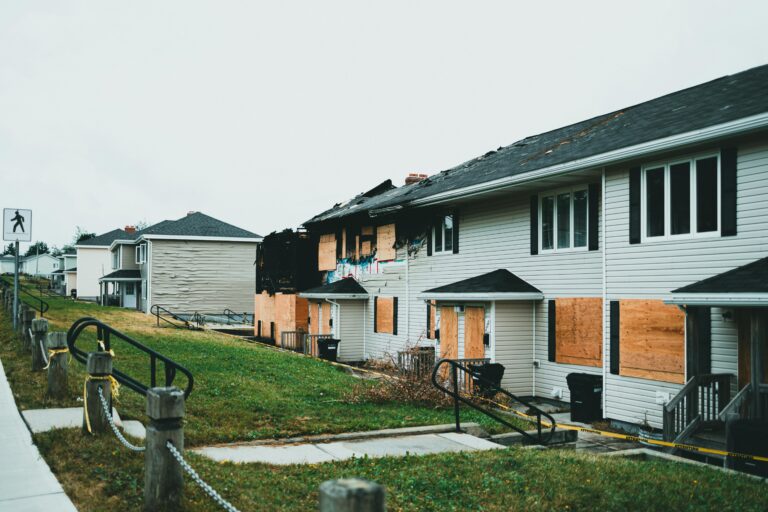Why Do Apartment Complexes Require Renters Insurance?
Learn why apartment complexes require renters insurance to protect tenants and landlords from financial risks and unexpected damages. Find out more.
Renting an apartment involves more than just signing a lease and moving in; in many cases, renters are required to obtain renters insurance. If you’re wondering why apartment complexes demand this, it’s because it helps protect both the tenant and landlord from unforeseen financial and legal consequences. In this article, we’ll explore why apartment complexes require renters insurance, its benefits, and the impact it has on both parties.
What Is Renters Insurance?
Renters insurance is a type of home insurance designed to protect tenants’ personal belongings in a rented property. It covers damages due to theft, vandalism, fire, and other disasters. Additionally, it provides liability protection, meaning if someone is injured in your apartment, your renters insurance could cover the medical and legal costs.
Why Do Apartment Complexes Require Renters Insurance?
Landlord Protection Against Tenant Liability
One of the primary reasons apartment complexes require renters insurance is to protect landlords from liability claims. If an accident occurs within the rented unit (such as a visitor getting injured), the liability coverage within the renters insurance policy helps cover any related legal fees or settlements. Without it, the tenant or landlord could face steep financial responsibilities.
Coverage for Property Damage
Accidents happen, and if a tenant accidentally causes damage to the apartment, such as starting a fire or causing water damage, renters insurance can cover the costs of repairs. This means landlords can avoid footing the bill for damage caused by tenants. In cases like overflowing bathtubs or kitchen fires, renters insurance covers both repairs to the tenant’s unit and any adjacent units affected.
Mitigating Risk for Landlords
Requiring renters insurance helps reduce risk for landlords. By ensuring tenants have insurance, landlords are less likely to face disputes over damages, injuries, or lost property. This can result in fewer legal battles and smoother relationships between tenants and management.
Replacing Tenants’ Personal Property
While the landlord’s insurance policy typically covers the building itself, it does not extend to tenants’ personal belongings. For instance, if a fire or flood occurs, the landlord’s insurance will repair the structural damage, but it won’t replace personal items like furniture, electronics, or clothing. Renters insurance fills this gap, ensuring tenants can replace their lost or damaged items after a covered incident.
Compliance with Lease Agreements
Some apartment complexes include renters insurance as a mandatory clause in the lease agreement. In these cases, tenants must obtain insurance as part of their rental obligations. Failure to comply with this requirement can lead to fines, lease termination, or even eviction, as the landlord is within their rights to enforce the terms of the lease.
Helps Keep Property Insurance Costs Low
By ensuring that tenants have their own renters insurance policies, landlords can help reduce the risk of claims being filed against their own property insurance policies. Fewer claims mean landlords can maintain lower premiums on their insurance coverage, benefiting the overall business.
Benefits of Renters Insurance for Tenants
While renters insurance is typically required for the benefit of the landlord, it also offers significant advantages to tenants:
- Personal Property Protection: Renters insurance covers the cost of replacing personal items lost or damaged due to theft, fire, or other covered events.
- Liability Coverage: If someone is injured in the tenant’s apartment or the tenant accidentally damages someone else’s property, renters insurance can cover the legal and medical expenses.
- Temporary Living Expenses: If the apartment becomes uninhabitable due to a covered disaster, renters insurance can help cover additional living expenses like hotel stays or temporary accommodations.
The Process of Getting Renters Insurance
Obtaining renters insurance is a straightforward process:
- Research Providers: There are many insurance companies that offer renters insurance. It’s essential to compare policies and prices to find the best fit.
- Get a Quote: Insurance companies offer online quotes based on the value of your belongings and the level of coverage you need.
- Purchase a Policy: Once you’ve selected a provider, purchasing a policy is quick. Be sure to confirm that the coverage starts on the correct date to avoid gaps.
- Provide Proof of Insurance: Most landlords require proof of insurance. Provide them with a copy of your policy to meet lease requirements.
Recent Trends and Updates
In 2023, there has been an increased emphasis on renters insurance across various states due to natural disasters like floods and fires. With more tenants living in high-risk areas, renters insurance has become crucial for protecting both tenants and landlords from the financial impact of these unpredictable events. Some states are even considering legislative changes to make renters insurance a legal requirement in high-risk zones.
Additionally, with the rise of pet ownership, many renters insurance policies are offering additional coverage for pet-related liabilities, such as damage caused by pets or injuries they may cause to others.
Conclusion
Renters insurance is a critical safeguard for both tenants and landlords. By requiring renters insurance, apartment complexes reduce their financial risk while ensuring tenants have protection for their belongings and liabilities. For tenants, renters insurance offers peace of mind and financial security in case of accidents, damages, or losses.
FAQs
How much does renters insurance typically cost? Renters insurance is generally affordable, with premiums ranging from $10 to $20 per month depending on the location, coverage limits, and additional options chosen.
Does renters insurance cover natural disasters? Yes, most renters insurance policies cover natural disasters like fires, but it’s important to check the specifics of your policy, as some disasters like floods may require additional coverage.
Can landlords evict tenants for not having renters insurance? Yes, if renters insurance is a mandatory clause in the lease agreement, landlords can issue fines or begin the eviction process for non-compliance.





